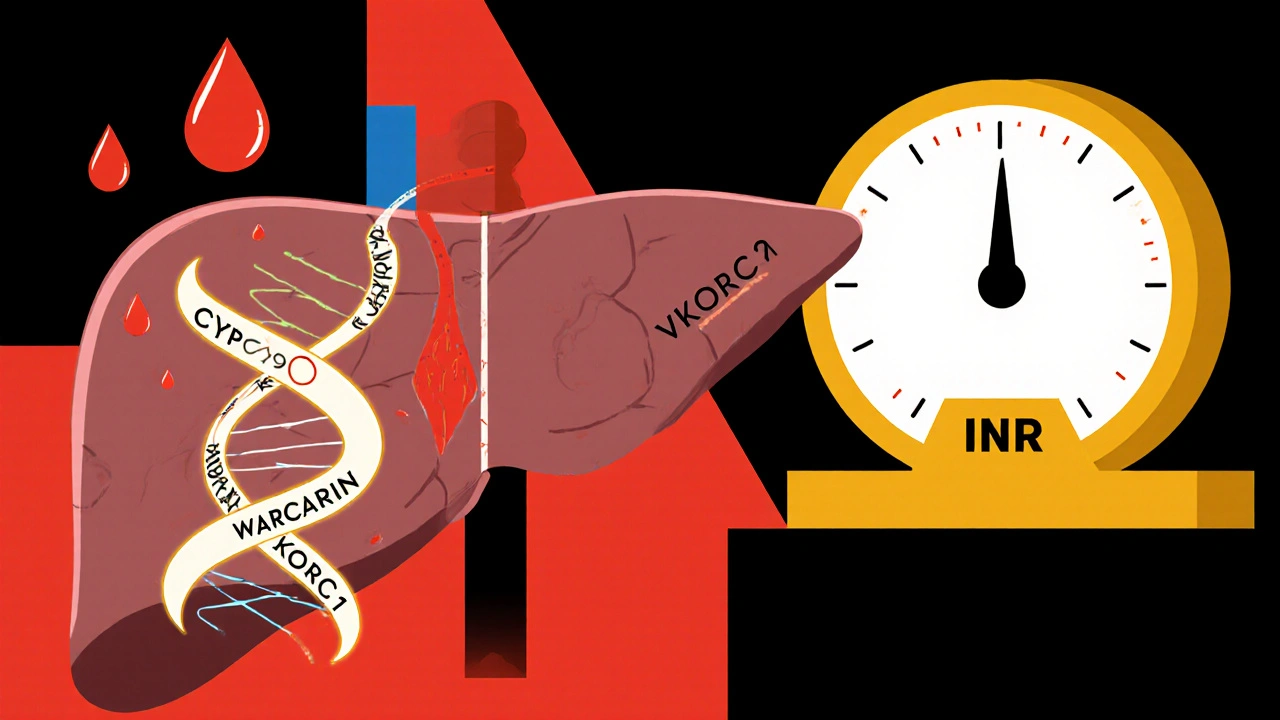CYP2C9: How This Enzyme Affects Your Medications and What You Need to Know
When you take a pill, your body doesn’t just absorb it — it breaks it down. And one of the main workers doing that job is CYP2C9, a liver enzyme that metabolizes about 15% of commonly prescribed drugs. Also known as cytochrome P450 2C9, it’s the reason some people need lower doses of blood thinners, while others clear antidepressants faster than expected. This enzyme isn’t just a passive filter — it’s a gatekeeper. If your CYP2C9 works too slowly, drugs build up and cause side effects. If it’s too active, the medicine might not work at all.
CYP2C9 doesn’t work alone. It’s part of a bigger system called pharmacogenomics, the study of how genes affect how your body responds to drugs. Some people inherit gene variants that make CYP2C9 less effective — like the *2 or *3 alleles — which means common drugs like warfarin, ibuprofen, or losartan can hit them harder. Others have extra-active versions and need higher doses just to feel the effect. This isn’t rare. Up to 20% of people carry at least one slow-metabolizer variant. That’s why two people taking the same dose of the same drug can have totally different results.
Doctors don’t always test for CYP2C9 status — but they should. If you’ve had unexplained bleeding on warfarin, dizziness on phenytoin, or no relief from low-dose celecoxib, your CYP2C9 might be the missing piece. Even over-the-counter painkillers like naproxen or flurbiprofen depend on this enzyme. And if you’re on multiple meds? CYP2C9 can get overwhelmed. Grapefruit juice, certain antibiotics, or even some herbal supplements can block it — turning a safe dose into a dangerous one.
What you’ll find below isn’t just a list of articles. It’s a practical toolkit. You’ll see how CYP2C9 links to real-world issues: why citalopram needs dose limits, how metformin interacts with contrast dye, why hydroxyurea affects fertility, and how carbamazepine can cause hair loss. These aren’t random side effects — they’re clues pointing back to how your body handles drugs. Whether you’re managing a chronic condition, worried about side effects, or just trying to understand why your meds aren’t working like your friend’s, this collection gives you the facts you need — no jargon, no fluff, just clear connections between your genes, your meds, and your health.

Warfarin Genetics: How CYP2C9 and VKORC1 Variants Affect Bleeding Risk and Dosing
Warfarin dosing varies wildly based on genetics. CYP2C9 and VKORC1 variants can make you dangerously sensitive to the drug. Testing before starting can cut bleeding risk by 32% and save lives.
read more